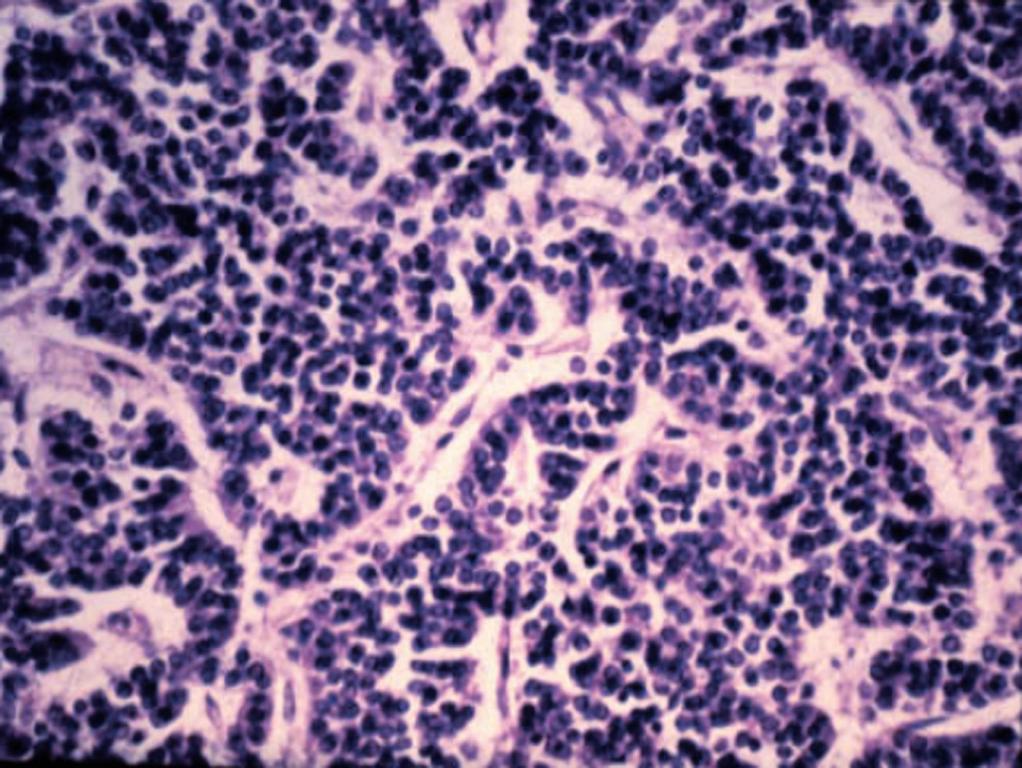
Carcinoid tumors are rare, often slow-growing tumors that form from neuroendocrine cells found throughout the body. Carcinoid tumors most commonly arise in the gastrointestinal system, including the appendix, small intestine, or rectum, but may occur in other sites, including the lungs.
In most cases, there is no clear cause of carcinoid tumors. There does not appear to be a strong association between cases of these tumors and typical cancer risk factors such as smoking and exposure to environmental toxins. In rare cases, carcinoid tumors can be linked to hereditary conditions such as multiple endocrine neoplasia types 1 and 2 and Von-Hippel Lindau disease.
Symptoms vary depending upon the type and location of carcinoid tumor. In many cases, patients may not experience any symptoms and the tumor is found during routine testing for other conditions. Some patients, however, may experience symptoms caused by the tumor or hormones it releases. These may include persistent cough or hoarseness, for tumors in the lungs; or abdominal pain, cramping, nausea, vomiting, or changes in bowel movements, for tumors in the small intestine. Carcinoid syndrome, which is caused by production of hormones including serotonin, can lead to redness and a feeling of warmth in the face and neck, and diarrhea.
As with most cancers, treatment for carcinoid tumors depends on the individual patient and how advanced the disease is. In early stages, treatment usually involves surgery. Patients are typically monitored with scans and blood tests following surgery to see whether follow-up chemotherapy and radiation may be required.
In cases where the cancer has spread, doctors may recommend targeted therapies, chemotherapy, or somatostatin analogs, which can reduce hormone secretion and help slow carcinoid tumor growth. When the tumor has spread to the liver, patients may be treated with liver-directed therapies to block blood supply to the tumor.
Learn more about treatment for carcinoid tumors from the Neuroendocrine and Carcinoid Tumors Program at Dana-Farber/Brigham and Women’s Cancer Center.

Glad Dana Farber is talking about these rare tumors